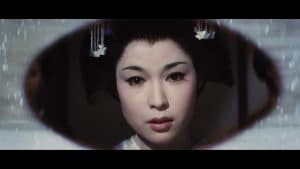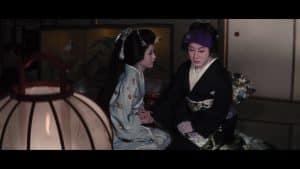Dir.: Kore-eda Hirokazu; Cast: Catherine Deneuve, Juliette Binoche, Ethan Hawk, Clementine Grenier, Manon Clavel; France 2019, 106 min.
Japanese director/writer/editor Kore-eda Hirokazu follows his Cannes winner Shoplifters with a feature which could hardly be more French despite his Japanese background: The Truth is not only set in a circle of actors (demi-gods in France), it is also all about the profession itself, with a little bit of gossip and lies as spice. And it features a cast to die for.
Deneuve assumes her usual role as Matriarch. She has just written her auto-biography, and scriptwriter daughter Lumir (Binoche) and family: husband Hank (Hawk) and daughter Charlotte (Grenier) have arrived from New York to celebrate. Actually they have really come to rehash the past: family secrets, grudges and other repressed emotions. Fabienne has always put her career first, leaving Lumir with fellow actress Sarah before she drowned under the influence of alcohol. “She wanted to steal my daughter” is Fabienne’s comment. Lumir’s biological father is always short of cash Fabienne’s current husband has taken on the role of martyr, so has the butler, who goes off in a sulk because he has not been mentioned in Fabienne’s opus. Lumir and Hank have an uneasy relationship, with him having been in rehab more than once. “Lets say he is a better lover than actor” tells Lumir, which may not mean much, since Hank himself believes that he is an second rate TV thespian. And there is the young starlet Manon (Clavel) who acts with Fabienne in her current feature, who reminds all of the famous Sarah.Needless to say, that Fabienne wins out – all he little white lies are swept under the carpet.
THE TRUTH is fun to watch, not surprising considering the cast. Kore-eda has developed a good feel for the rather superficial milieu, but he lets everyone get away with a slap on the wrist. Eric Gautier’s images are lush, particularly Fabienne’s villa is real property porn – in spite of the prison build directly behind it. The film-in-film sequences remind us of Truffaut’s Day for Night – which could be said for the whole endeavour. Hardly groundbreaking, but done with tender love for the cinema and its protagonists. AS
VENICE FILM FESTIVAL 28 August – 7 September 2019

 The film is set in the late 1830s. Yukitaro (Kazuo Hasegawa) is a male actor who plays female roles and his stage name is Yokinojo. Whilst in Edo, acting in a play, he notices in the audience the three men who were responsible for the death of his mother and father. He is persuaded by the Hirutaro (Raizo Ichikawa), the head of the acting troupe, to take revenge on the murderers. Yet Yukitaro decides to drive them to a ‘theatrical’ madness before killing them (he announces his revenge will be “a flamboyant performance”). Unfortunately he is emotionally sidelined by the daughter of one of the guilty men. Namiji (Ayako Wakao) is genuinely attracted to Yukitaro and desires a romance. Initially, he sees her attention as a pretence to trapping him but gradually realises that she is sincere. Yokitaro’s revenge is achieved but on the way it is challenged by erotic attraction and the self-mocking criticism of a thief Hojin (Shintaro Katsu) who is continually pursuing the actor.
The film is set in the late 1830s. Yukitaro (Kazuo Hasegawa) is a male actor who plays female roles and his stage name is Yokinojo. Whilst in Edo, acting in a play, he notices in the audience the three men who were responsible for the death of his mother and father. He is persuaded by the Hirutaro (Raizo Ichikawa), the head of the acting troupe, to take revenge on the murderers. Yet Yukitaro decides to drive them to a ‘theatrical’ madness before killing them (he announces his revenge will be “a flamboyant performance”). Unfortunately he is emotionally sidelined by the daughter of one of the guilty men. Namiji (Ayako Wakao) is genuinely attracted to Yukitaro and desires a romance. Initially, he sees her attention as a pretence to trapping him but gradually realises that she is sincere. Yokitaro’s revenge is achieved but on the way it is challenged by erotic attraction and the self-mocking criticism of a thief Hojin (Shintaro Katsu) who is continually pursuing the actor. The film is completely set in the studio, making for a superb staging of action that intensifies its heightened theatrical ‘reality.’ This is a valid Ichikawa world where performers are cunningly immersed in the idea of performance (without ever being self-consciously aware of the effect they are striving to achieve). An Actor’s Revenge then becomes an intoxicating concoction when astonishing camerawork and a jazzy, lounge-lizard soundtrack are added to the mix.
The film is completely set in the studio, making for a superb staging of action that intensifies its heightened theatrical ‘reality.’ This is a valid Ichikawa world where performers are cunningly immersed in the idea of performance (without ever being self-consciously aware of the effect they are striving to achieve). An Actor’s Revenge then becomes an intoxicating concoction when astonishing camerawork and a jazzy, lounge-lizard soundtrack are added to the mix.